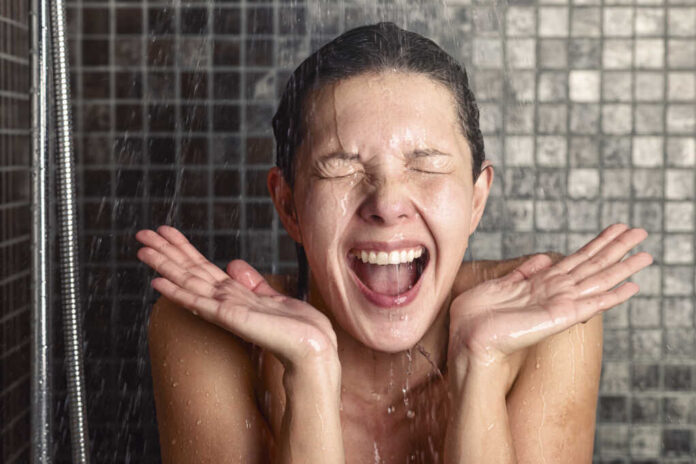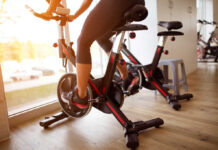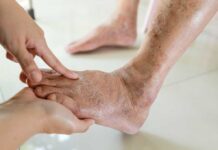
What seems like a refreshing cold shower on a hot day might actually be trapping heat in your body and making you warmer in the long run.
At a Glance
- Cold showers during hot weather can constrict blood vessels near the skin, preventing heat from escaping the body’s core
- Sudden exposure to cold water can trigger a dangerous “cold shock” response, increasing blood pressure and heart rate
- Tepid or lukewarm showers (26-27°C) are recommended as the most effective way to cool down during heat waves
- Cold water is less effective at cleaning the skin and may contribute to body odor and acne problems
- Certain foods like mint, watermelon, and spicy dishes can help cool the body more effectively than cold showers
Why Cold Showers Can Make You Hotter
When temperatures soar, many people instinctively reach for the cold shower faucet seeking relief. However, this common practice might be counterproductive. The body’s response to sudden cold exposure includes vasoconstriction—a narrowing of blood vessels near the skin’s surface—which actually prevents internal heat from escaping. This physiological response is designed to protect your core temperature when faced with cold, but during hot weather, it works against your cooling needs.
After leaving a cold shower, your body can experience a rebound effect. The blood vessels that constricted during cold exposure dilate rapidly, potentially causing you to feel even hotter than before. Additionally, cold water makes the skin’s pores contract, reducing the effectiveness of sweating—your body’s natural cooling mechanism. The result is a temporary feeling of relief followed by increased discomfort as your body struggles to regulate its temperature.
Health Risks of Cold Water Exposure
Beyond being ineffective for cooling, cold showers during hot weather can pose health risks. The sudden temperature change can trigger what experts call “cold shock,” a physiological response that includes involuntary gasping, hyperventilation, and increased heart rate and blood pressure. For individuals with pre-existing heart conditions, this stress response can be particularly dangerous, potentially triggering cardiac events in vulnerable people.
Cold water immersion can also impair cognitive function and physical capabilities, even in otherwise healthy individuals. When the body experiences cold shock, decision-making abilities may become compromised, and fine motor control can deteriorate. These effects are particularly concerning when cold showers are taken by elderly individuals or those with mobility issues, as the risk of falls and injuries increases during the sudden physiological stress response.
Better Alternatives for Cooling Down
Instead of reaching for the cold tap, experts recommend tepid or lukewarm showers with water temperatures around 26-27°C (78-80°F). This temperature range helps cool the body without triggering vasoconstriction, allowing heat to dissipate naturally from the body’s core. Lukewarm water is also more effective at cleaning the skin by opening pores and removing dirt, sweat, and bacteria that can accumulate during hot weather.
Dietary choices can also play a significant role in managing body temperature during hot weather. Nutritionists recommend consuming cooling foods like mint, spinach, coconut milk, and watermelon. Counterintuitively, spicy foods like curry and chili can help cool the body by inducing perspiration, which aids in temperature regulation through evaporation. Meanwhile, foods high in carbohydrates and protein should be limited as they generate more heat during digestion, potentially raising core body temperature when it’s already elevated.
When Cold Showers Are Beneficial
While cold showers aren’t ideal during hot weather, they do offer benefits in other contexts. Cold water exposure can reduce muscle soreness after exercise, potentially improve circulation when used appropriately, and may help with certain skin conditions like itchiness. Some research suggests cold showers might support weight management efforts by activating brown fat, which burns calories to generate heat. However, these benefits should be weighed against the risks, particularly for those with cardiovascular concerns.
For those who enjoy the invigorating sensation of cold water, contrast showers—alternating between warm and cool temperatures—may provide some benefits without the full shock response. This technique can stimulate circulation without causing prolonged vasoconstriction. Regardless of the chosen approach, finishing with moisturizer after showering helps maintain skin hydration, which is especially important during hot weather when both sun exposure and frequent bathing can lead to dry skin.


















